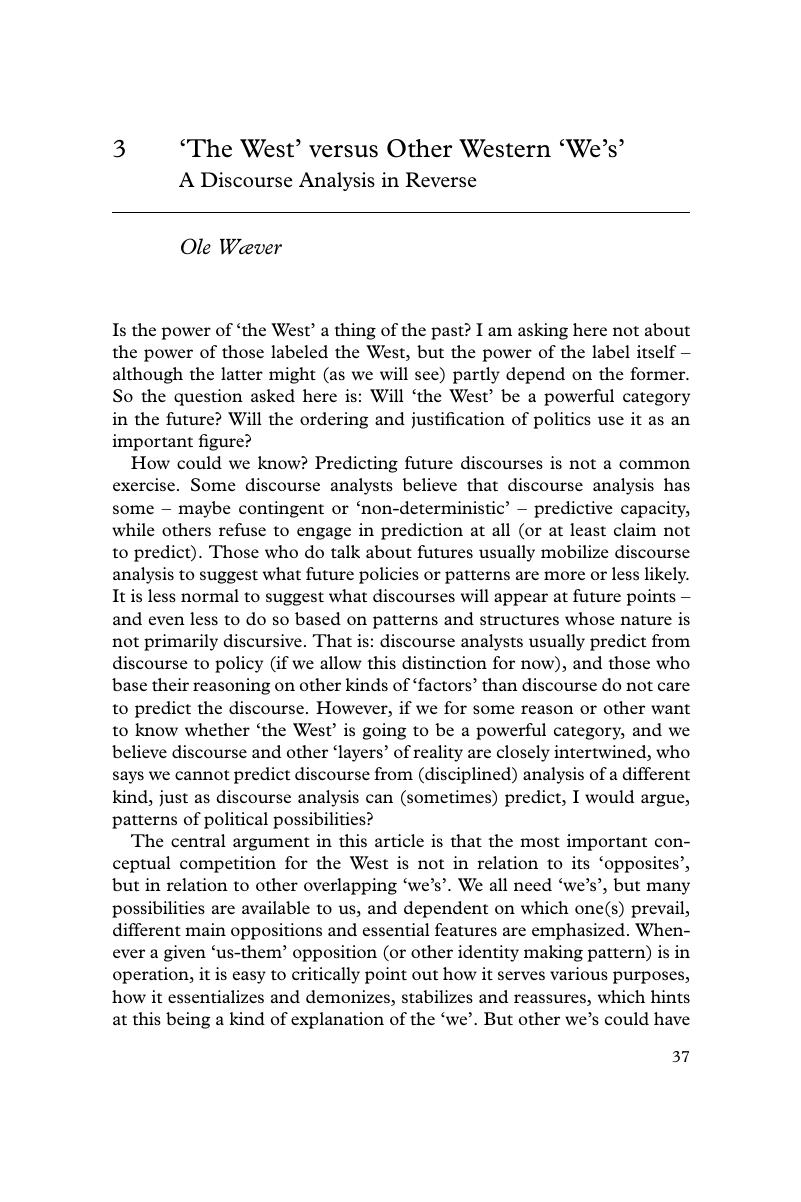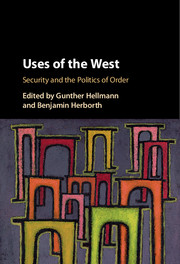Book contents
- Uses of the West
- Uses of the West
- Copyright page
- Contents
- Figures
- Tables
- Notes on Contributors
- 1 Introduction
- Part I Theorizing the West
- 2 Foreign Policy Identity Crises and Uses of ‘the West’
- 3 ‘The West’ versus Other Western ‘We's’
- 4 Between Polarisation and Appeasement
- 5 After ‘the Clash’
- Part II The West in Use
- Part III Transformations of the Western Institutional Order
- Index
- References
3 - ‘The West’ versus Other Western ‘We's’
A Discourse Analysis in Reverse
from Part I - Theorizing the West
Published online by Cambridge University Press: 20 January 2017
- Uses of the West
- Uses of the West
- Copyright page
- Contents
- Figures
- Tables
- Notes on Contributors
- 1 Introduction
- Part I Theorizing the West
- 2 Foreign Policy Identity Crises and Uses of ‘the West’
- 3 ‘The West’ versus Other Western ‘We's’
- 4 Between Polarisation and Appeasement
- 5 After ‘the Clash’
- Part II The West in Use
- Part III Transformations of the Western Institutional Order
- Index
- References
Summary

- Type
- Chapter
- Information
- Uses of 'the West'Security and the Politics of Order, pp. 37 - 59Publisher: Cambridge University PressPrint publication year: 2016
References
- 1
- Cited by



